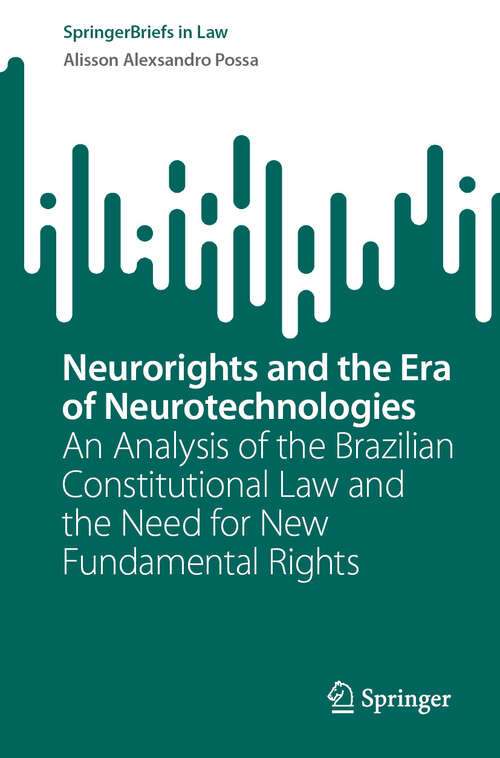
Neurorights and the Era of Neurotechnologies: An Analysis of the Brazilian Constitutional Law and the Need for New Fundamental Rights (SpringerBriefs in Law)
Computers and internet, Laws and statutes, Philosophy, Law and crime, Science and technology
Synthetic audio, Automated braille
Summary
This book provides an in-depth study on the theory of fundamental rights and the legal challenges posed by new technologies, with a particular focus on neurotechnologies and neurorights. The book begins with an overview of the evolution of neuroscience and… neurotechnology, highlighting the current challenges these advancements pose to contemporary legal frameworks. It also discusses the potential for widespread adoption of these technologies, driven by significant investments from tech companies. The first chapter delves into the development of neuroscience and neurotechnology, emphasizing the legal implications and future concerns associated with their mass adoption. It explores how these technologies are being integrated into society and the legal challenges they present. The second chapter examines the concept of neurorights, identifying the legal objects these rights aim to protect and the new risks introduced by neurotechnologies. It provides a comprehensive review of the main neurorights proposals from recent decades, with a detailed analysis of the theoretical framework proposed by Marcello Ienca and Roberto Andorno in 2017. Their proposal includes four new human rights: cognitive freedom, mental privacy, mental integrity, and psychological continuity. The final chapter analyzes the relationship between neurorights and existing constitutional protections, focusing on the protection of human dignity. It discusses the right to free development of personality, physical and psychological integrity, and privacy and data protection. The chapter draws on theories of fundamental rights from Brazilian constitutionalists to provide a thorough examination of these issues. The book offers a broad analysis of the main neurorights proposals by international researchers, comparing them with the fundamental rights recognized in the Brazilian Constitution. It aims to determine whether new fundamental rights are necessary to protect Brazilian citizens from the potential harms of neurotechnology. This study is essential for researchers in neuroethics, neurorights, and fundamental rights, providing valuable insights into the intersection of law and emerging technologies.